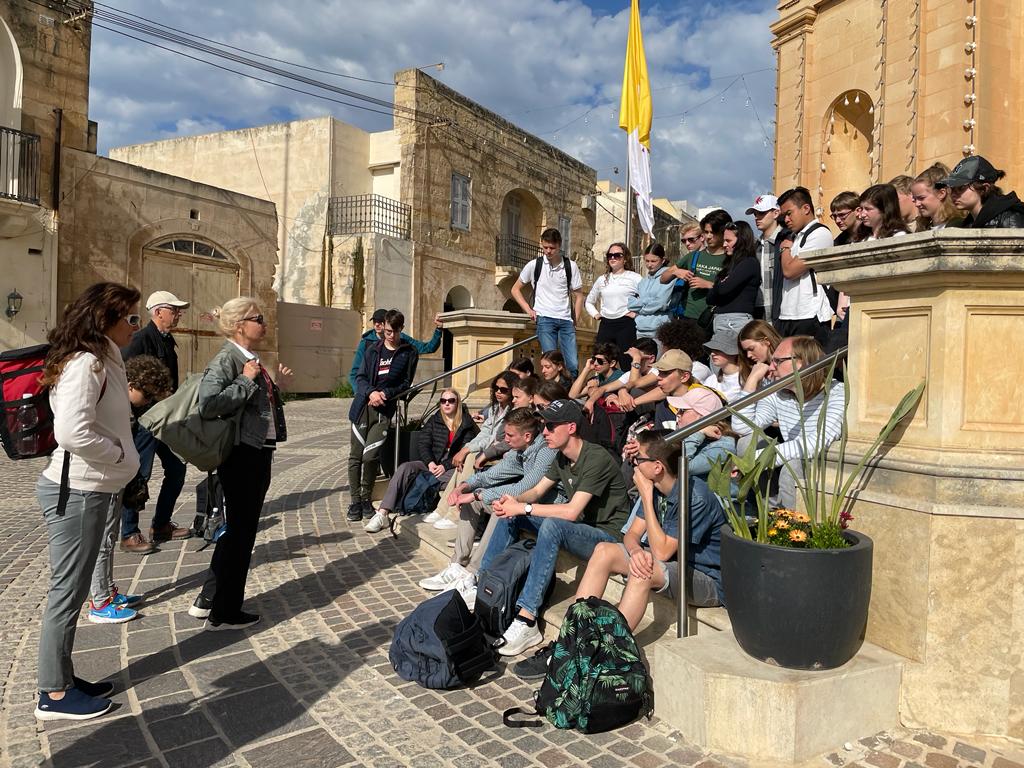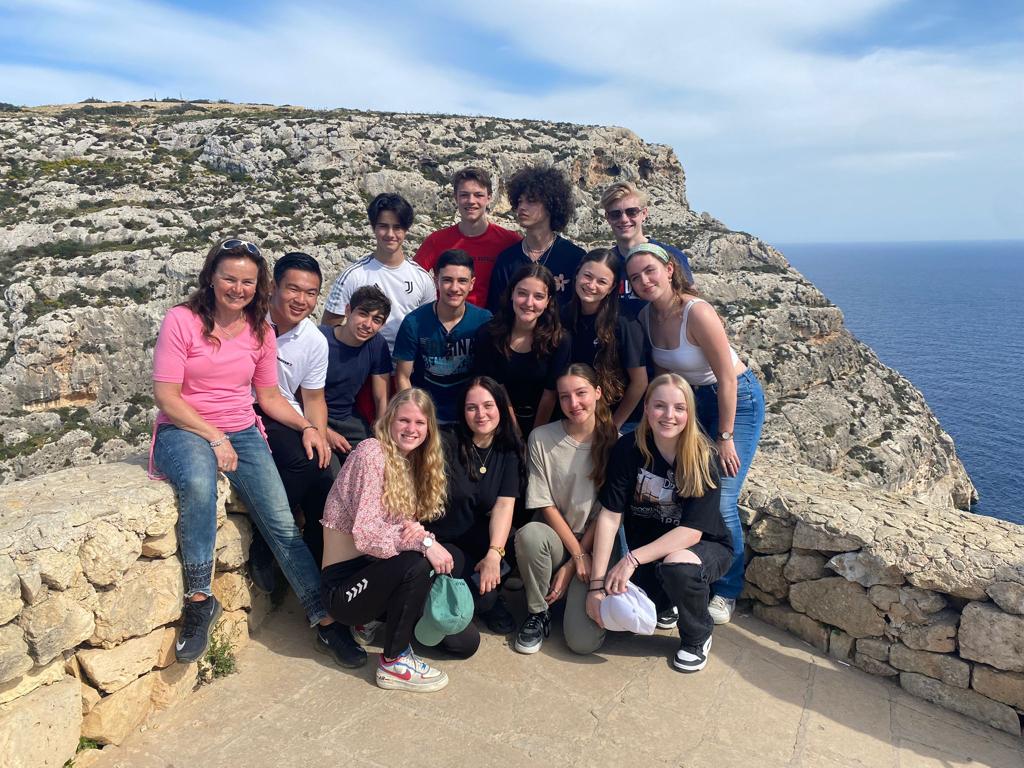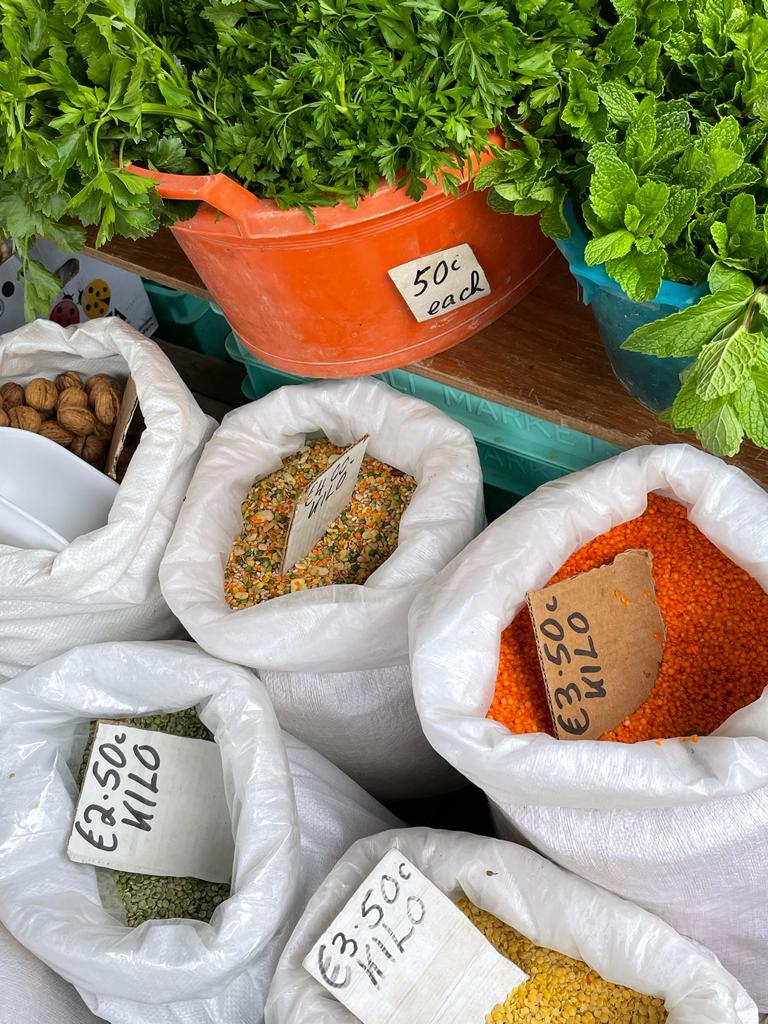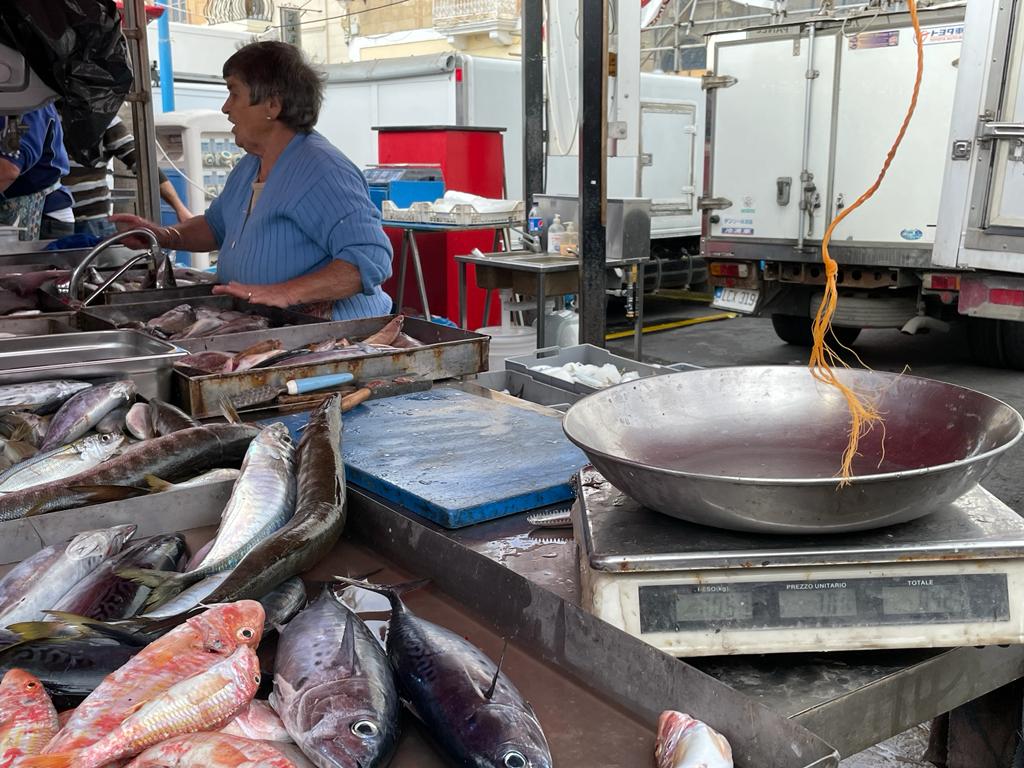Cambridge 5 Erasmus+ study trip to the Maltese Islands part two
3 april 2023
Friday March 31st
Today was Freedom Day in Malta, a national holiday to celebrate the fact that the British forces left Malta in 1979. The Maltese celebrate this day by organising events and activities all over the island. During our visit to the Golden Bay beach we came across sports activities organised for the young and the old alike to celebrate this memorable event. After a short, but very enjoyable, stay at one of Malta’s most popular beaches we savoured a Freedom pastiche in Rabat, a special treat for this day, before walking to the ancient city of Mdina. Here we learnt about its magnificent history as the former capital of Malta and its present demise. Only 255 people still live in Mdina, and only one of them is a junior citizen. The students explored every nook and cranny of this city while working on their photo assignments. We ended the day with a lovely Maltese dinner at a local restaurant in Rabat.
Saturday April 1st
Today the students were introduced to the rich culture of voluntary work in Malta. We volunteered at RMJ Malta Horse Rescue in Siggiewi, where former race horses are rehabilitated and rehomed to other parts of Europe. Currently there are some 80 horses in this shelter that need a lot of maintenance on a daily basis. Our students helped by doing odd jobs: cleaning stables, washing some of the horses, and other useful chores. Obviously the volunteer centre is completely dependent on donations and volunteers to be able to continue offering shelter to often traumatized horses. Our students experienced the relevance and value of doing voluntary work.
After all the hard work we had a lovely pasta lunch at a local venue. In the afternoon we explored the Zurrieq Valley and its coast line.
Sunday April 2nd
Even though it was a Sunday, the students were up and about quite early to visit the Fishermen’s Market in Marsaxlokk. They witnessed the ancient trade of the Maltese fishermen: bringing in the catch, cleaning the fish and the subsequent trading rituals at the market. The guide also put the trade in a modern perspective: because of overfishing and climate change the fishing stocks are heavily depleted in the Maltese seas. The tragedy here is that most fish is caught for export, to countries such as Japan. This is another example of the impact of global trade on the island.
Afterwards the students visited two Unesco World Heritage Sites: the Ħaġar Qim and Mnadjra Megalithic temples. They were introduced to the ancient culture of temple builders, and the many unanswered questions that archaeologists are still trying to solve. They were informed of the challenges the Maltese faced in preserving their heritage in the past. The elements were one force to be reckoned with, mismanagement by the older generations, such as the British, was another.
To be continued …











